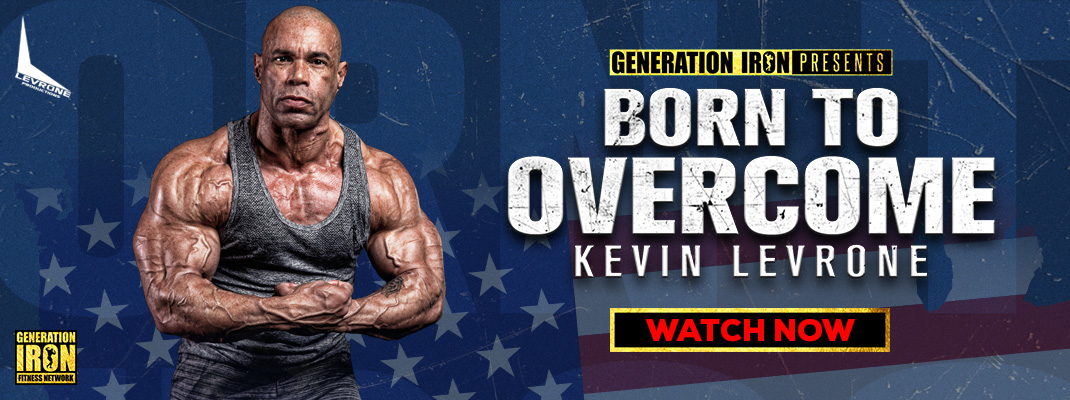Kevin Levrone has gone down in bodybuilding history as a true legend. He competed in what is now considered the new Golden Era of bodybuilding (the 1990s). He is also often cited as having one of the greatest physiques of all time.
Listen to the full Kevin Levrone interview here:
Kevin Levrone Reflects On Comeback: “I Let My Fans Down In The Way I Looked”
Kevin Levrone competed in two competitions as part of a comeback in 2016 – the Mr. Olympia and the Arnold Classic Australia. Ultimately, his physique did not land him high placing. Despite this he still received a standing ovation from the audience. The entire journey was chronicled in our documentary Born To Overcome.
During our interview in 2020, Kevin Levrone looked back at his entire comeback process. Has time changed his thoughts on the entire endeavor? Does he have any regrets? Ultimately, Levrone admits that he felt disappointed by the comeback. Not because he needed a trophy but more because he felt he left the fans down.
Despite this, he regrets nothing, he is proud that he put himself through the paces again nearly 15 years after his original retirement. He understood that despite feeling like he disappointed the fans – the fans supported him the entire journey.
Kevin Levrone On Modern Bodybuilding: “I Think The Quality Went Down”
Over this past decade, many fans, athletes, and experts have been debating about the quality of modern bodybuilding physiques. Has the overall quality gone down compared to past generations? Some legends such as Dorian Yates and Ronnie Coleman say yes. It seems that Kevin Levrone also agrees.
But what is the reason for this decline? Levrone believes it comes down to the competition. He thinks that there is no Ronnie Coleman or Dorian Yates to push pro bodybuilders to new extremes. Without a world-changing mass monster setting the bar, Kevin Levrone thinks bodybuilders have less incentive to work as hard.
But Kevin Levrone doesn’t think that this the beginning of a downward spiral. He just thinks this is the ebb and flow of times. No sport is a rising arrow each and every decade. It has its ups and its downs. And even in this case – the downs are particularly bad – just different.
Kevin Levrone Reacts To Robby Robinson’s Statements Of Racism In Pro Bodybuilding
The past few years have been extremely turbulent times. Not just due to the pandemic changing life as we know it temporarily. It’s also due to social unrest that has boiled over after decades of injustice. This is particularly true as the Black Lives Matter movement rose to prominence in 2020.
During a previous interview with bodybuilder Robby Robinson, he spoke out about his personal experiences of racism in pro bodybuilding and specifically Joe Weider. He was inspired to speak out about it due to the ongoing protests at the time.
Shortly after, we interviewed Kevin Levrone. So we asked for his reaction to the claims that Robby Robinson made. The two bodybuilders competed in different generations. Did Levrone experience anything similar to what Robinson described?
According to Levrone, he had never seen, heard, or experienced any acts of racism in pro bodybuilding. In his short time knowing Joe Weider, he was not subject to any form of racism from him. Levrone doesn’t use this to completely negate Robinson’s claims. Instead, he points out the fact that they were from two different eras.
Kevin Levrone can’t speak to what Robby Robinson experienced. He can only speak to his own experience. For him, pro bodybuilding was always a family and community of acceptance.
Wrap Up
There were many more topics discussed in our interview with Kevin Levrone than what we can cover in this article. So make sure to watch the full near-hour GI Exclusive interview with Kevin Levrone above. You can also dive deeper into the mind of Levrone by watching our documentary film Born To Overcome. Available now on digital. Click here or the banner below to stream or download.








